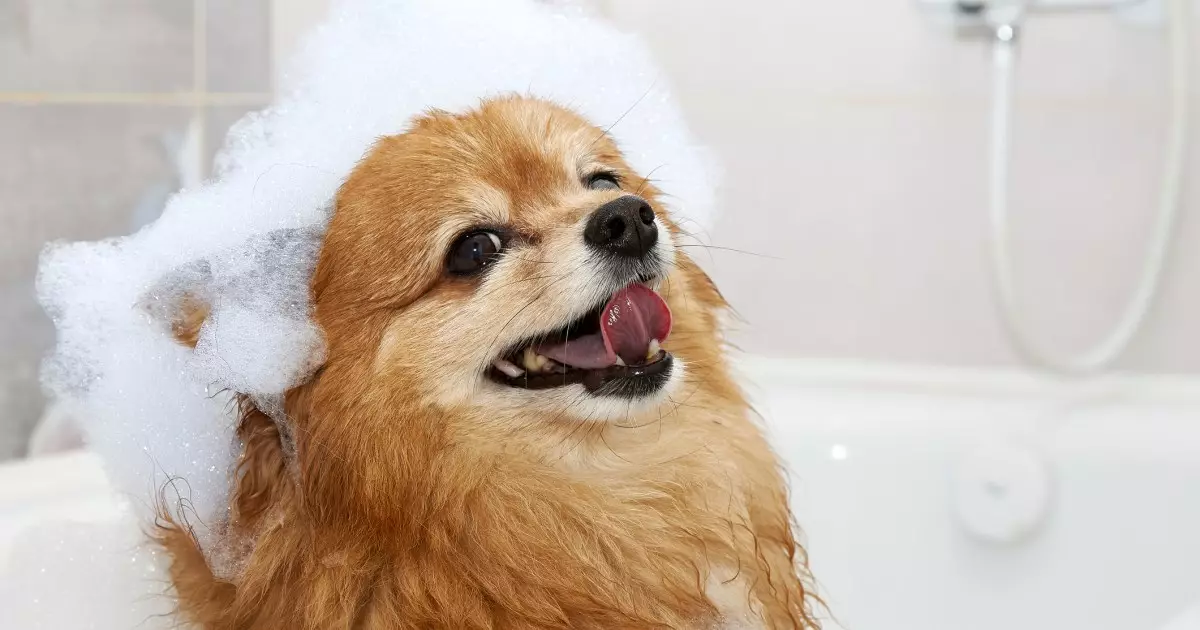Bathing dogs is often a contentious issue; many furry companions react to bath time as if they’re being subjected to some form of punishment. Yet, regular baths are essential for maintaining a dog’s overall hygiene and health. While some dogs with short coats may occasionally get by with just a water rinse, most require a proper shampoo formulated specifically for their needs. This raises an important question: why can’t you simply use your own shampoo during your dog’s bathing ritual?
Contrary to what some pet owners might assume, the shampoo designed for human hair is not suitable for dogs. Human shampoos typically contain a range of ingredients tailored for human hair and skin, which can strip the natural oils found in a dog’s coat. This can lead to dryness, irritation, or even more serious skin conditions. Manufacturers of dog shampoo emphasize the need for products that clean effectively without damaging the protective oils in a dog’s fur.
Moreover, many common human shampoos include harsher detergents that can further irritate a dog’s skin, leading to discomfort or allergic reactions. Therefore, it’s crucial for pet owners to stick to shampoos labeled specifically for dogs or, in the rare case advised by a veterinarian, gentle baby shampoos designed for infants.
There exists a myriad of dog shampoos intended for various needs, just as there are for humans. Selecting the appropriate shampoo often requires advice from a veterinarian or a professional groomer, as they can offer insights tailored to your dog’s coat type, age, and specific needs. It’s important to remember that not all dogs are created equal when it comes to bathing; pups have different fur types, sensitivities, and health issues.
To help guide your choice, here are some categories of dog shampoos you might consider:
1. Puppy Shampoo: For the little ones, there are tear-free formulas that are gentle enough for their sensitive skin.
2. Brightening Shampoos: If you own a white or light-colored dog, you may want a brightening shampoo to restore the sparkle to their coat after playtime.
3. Waterless Shampoos: Ideal for those quick clean-ups, these dry shampoos or powders can remove dirt and odors but won’t provide a thorough cleanse.
4. Deodorizing Shampoos: These are specially formulated for dogs who have taken an unexpected roll in something foul-smelling, though they may not be powerful enough against particularly malodorous encounters, like skunk spray.
5. Skunk Remover: While it’s not technically a shampoo, a specific mixture of hydrogen peroxide, baking soda, and liquid soap proves to be effective in neutralizing skunk odor more reliably than conventional deodorizing shampoos.
Certain shampoos address specific health concerns and can be integral to managing your dog’s well-being. For instance, medicated shampoos often help in treating common dog ailments, such as flea infestations, skin irritations, or allergies. Here are a few subcategories you may encounter:
– Flea and Tick Shampoos: These formulations typically contain active ingredients that repel or kill parasites.
– Hypoallergenic Shampoos: Perfect for dogs with sensitive skin or allergies, these shampoos eliminate harsh chemicals that can provoke reactions.
– Anti-Itch Shampoos: Infused with soothing properties like hydrocortisone, these can alleviate discomfort caused by allergies or skin issues.
– Prescription Shampoos: In more severe cases, your vet may recommend a shampoo specifically designed to combat serious conditions like mange.
While many dogs will resist bath time, understanding the necessity behind choosing the correct shampoo helps to make the process less painful for both owner and pet. By using products specifically designed for canine needs, you promote healthy skin and a shiny coat, ensuring a happy, clean dog — no matter how often they try to escape the tub. In the end, engaging with your vet or groomer about the best bathing regimen and products for your furry friend could prove invaluable, leading to less stress and more wagging tails in your household.

